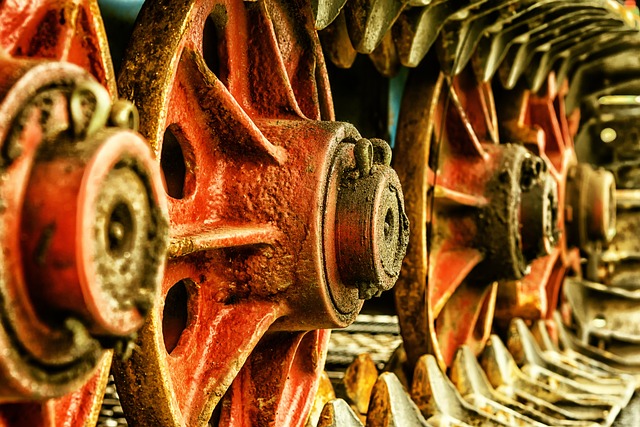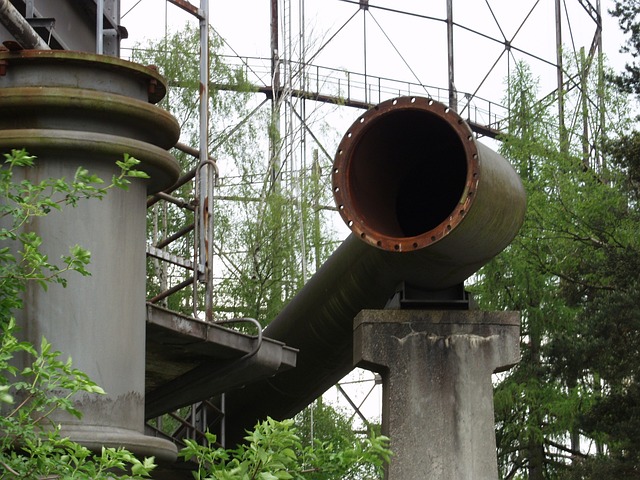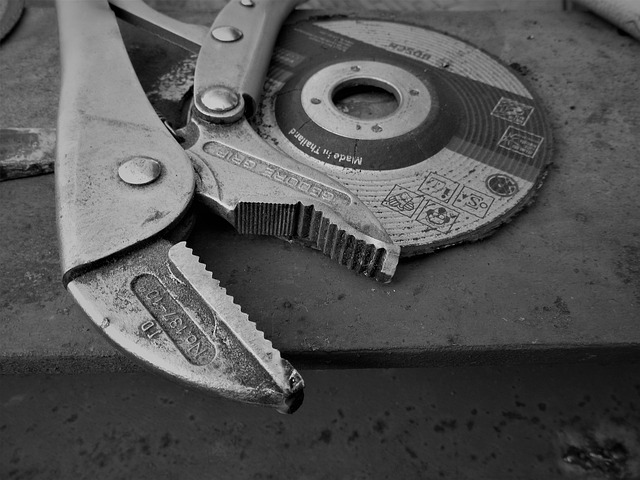Pipe corrosion, a widespread concern in residential and industrial settings, is caused by factors like exposure to corrosive substances (e.g., salt water, acids), unsuitable pipe materials (especially metal prone to rust), improper installation allowing moisture intrusion, and environmental conditions. Regular inspections are key to early detection and prevention. Minor surface rust can be treated with simple methods, but deep structural damage necessitates replacement. Consulting a professional plumber is advised for persistent or severe corrosion issues stemming from incompatibility, incorrect water chemistry, or inadequate insulation, ensuring safe and efficient solutions to prevent leaks, cracks, and structural failures.
Pipe corrosion is a common issue that can lead to costly repairs. Understanding when to fix, replace, or call a professional for pipe corrosion repair is crucial for maintaining plumbing systems. This article delves into the common causes of pipe corrosion, offering guidance on when it’s feasible to tackle problems yourself and when professional assistance is required. By exploring these key considerations, homeowners can make informed decisions regarding pipe corrosion repair.
Common Causes of Pipe Corrosion

Pipe corrosion is a common issue that can arise due to various factors, leading to significant structural damage and potential safety hazards. Understanding the common causes of pipe corrosion is essential for homeowners and professionals alike to make informed decisions regarding maintenance and repairs. One of the primary culprits is exposure to corrosive substances, such as salt water or strong acids, which can erode the pipe’s protective coating over time. This is particularly prevalent in coastal areas or industrial settings where pipes may come into direct contact with these corrosive elements.
Another significant factor is the type of material used in pipe construction. Metal pipes, while durable, are susceptible to corrosion due to their reactivity with moisture and oxygen. Iron, for instance, rusts easily when exposed to water, resulting in a weak and brittle pipe structure. Additionally, improper installation techniques, including inadequate sealing or incorrect jointing, can create spaces for moisture intrusion, further accelerating corrosion processes. Regular inspection and maintenance are key to identifying early signs of corrosion and taking appropriate action, whether it’s fixing minor issues, replacing damaged sections, or calling in professional help for more complex cases.
When to Fix and When to Replace

Pipe corrosion is a common issue that can arise due to various factors, including exposure to moisture, chemicals, and extreme temperatures. When addressing pipe corrosion, understanding when to fix and when to replace is crucial.
Minor corrosion, often visible as surface rust or pitting, can typically be fixed through simple methods like sanding, painting, or applying specialized coatings. Regular maintenance, such as checking for leaks and sealing joints, can also prevent further damage. However, if the corrosion has penetrated deeper layers of the pipe, causing structural integrity issues or significant thickness loss, replacement might be necessary. Additionally, when common causes of pipe corrosion like rust buildup, scale accumulation, or chemical erosion are left unchecked, they can lead to more severe problems that compromise the pipe’s functionality and safety.
When to Call a Professional

If you’re dealing with pipe corrosion and it’s beyond routine maintenance, it might be time to call in a professional. Common causes of pipe corrosion include materials compatibility issues, incorrect water chemistry, and inadequate insulation, among others. When these problems persist or if corrosion is severe, leading to leaks, cracks, or significant structural damage, professional intervention is necessary.
Professional plumbers are equipped with advanced tools and expertise to diagnose the root cause of the corrosion accurately. They can also recommend and implement the most effective repair or replacement solutions, ensuring your pipes are restored safely and efficiently.
Pipe corrosion is a common problem, but understanding its causes and knowing when to act can prevent costly replacements. By identifying the signs and addressing issues early, whether through repair or replacement, homeowners can ensure efficient water flow and avoid larger plumbing disasters. Remember, while some minor corrosion fixes may be DIY-friendly, complex cases often require professional expertise. Always consider the extent of the damage and consult a plumber when in doubt to maintain a reliable plumbing system.
